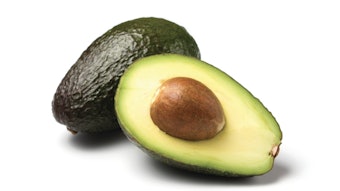Middle-aged smokers whose faces were heavily wrinkled were five times as likely to have chronic obstructive pulmonary disease (COPD) than smokers whose faces were relatively smooth, the study found.
The authors speculated that both COPD and wrinkling may be linked by a common mechanism and that facial wrinkling might indicate susceptibility to the potentially deadly lung disease.
It's unclear, however, what kind of clinical relevance the findings hold.
"It's certainly biologically plausible," said Dr. Norman Edelman, chief medical officer for the American Lung Association. "This may be of use in educating patients but, in terms of detection of lung disease, we [already] have a simple breathing test. We don't have to look for wrinkles."
The research appears in the June 14 online edition of Thorax, which is published by the British Medical Journal.
COPD refers to a group of progressive chronic lung diseases, including emphysema and bronchitis, that block the airways and restrict oxygen flow.
Some 13.5 million Americans suffer from COPD, and the World Health Organization predicts that the condition will become the third leading cause of death worldwide by 2020.
Smoking is the biggest risk factor for COPD, and dermatologist have long noted that smoking causes premature aging of the skin.
However, not all smokers go on to develop COPD. "Obviously, people vary in their response to what's in the smoke," Edelman said.
In the study, the team wanted to see if genetic factors that predispose smokers to COPD might also predispose them to wrinkles.
The researchers, based at Royal Devon and Exeter NHS Foundation Trust, analyzed data on 149 current and former middle-aged smokers, 68 of whom (45.6 percent) had COPD. The participants came from 78 families.
Eighty-three percent had no facial wrinkling or only minor lines, but close to 17 percent had considerable wrinkling.
Lung strength and function, measured in all participants, turned out to be significantly lower in those with extensive wrinkling than in those with smoother faces.
People with heavy wrinkles were also five times more likely to have COPD than those without wrinkles. People with facial wrinkling also had triple the risk of suffering from more severe emphysema.
The authors theorized that smoking-linked changes in cells' collagen and elastin may be important for the development of both lung disease and wrinkles.
The findings are more likely to be helpful in spurring new research than in providing any direct benefit to patients, Edelman said.
"I think this will be of use to basic biologists," he explained. "Maybe you can start doing experiments on the skin, maybe that's an easier model to use than the lung to figure out what the mechanisms are."
HealthDay News, June 14, 2006










